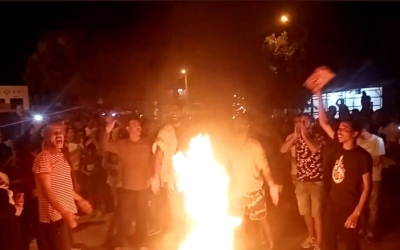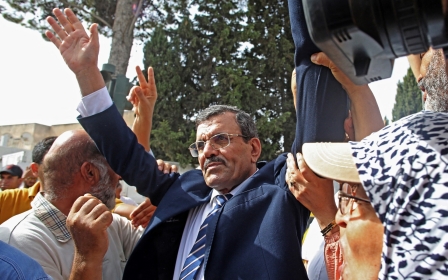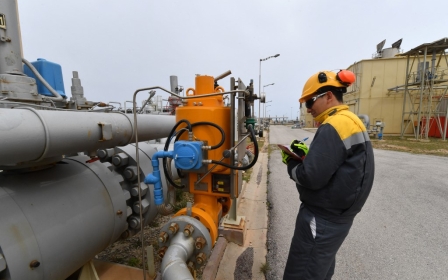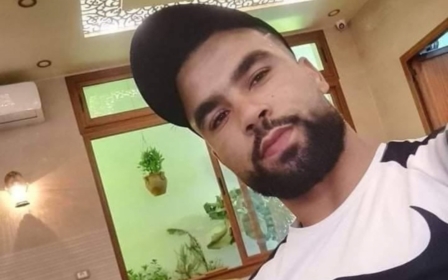Tunisia: Protesters denounce 'coup', demand President Kais Saied's removal
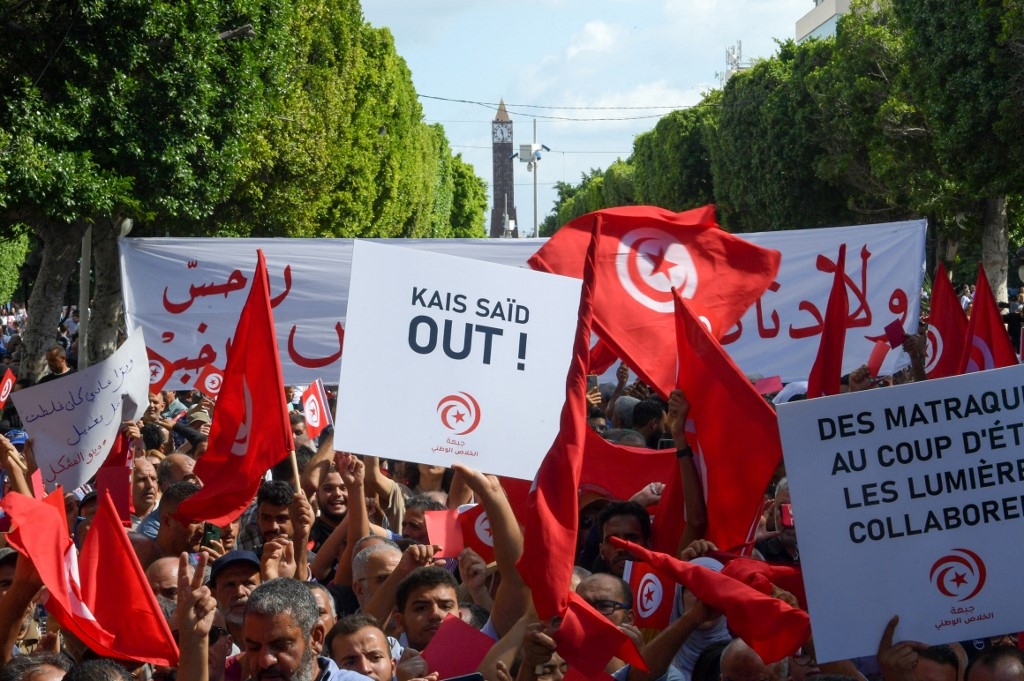
Thousands of Tunisians took to the streets in Tunis on Saturday, denouncing a power grab by President Kais Saied and demanding accountability for the country's long-running economic crisis.
Saied staged a power grab in July last year and later pushed through a constitution enshrining his one-man rule, in what critics have called a return to autocracy in the only democracy to have emerged from the Arab Spring.
Protesters in central Tunis chanted, "Down, down", "Revolution against dictator Kais" and "The coup will fall".
The march was organised by the National Salvation Front, a coalition of opposition parties including the Ennahdha movement that had dominated Tunisia's parliament before its dissolution by Saied.
Ali Laarayedh, Tunisia's former prime minister and a senior Ennahdha official, told AFP that the protest was an expression of "anger at the state of affairs under Kais Saied".
"We are telling him to leave."
Saied's power grab was welcomed by some Tunisians tired of what they saw as a fractious and corrupt system established after the 2011 revolution that ousted late dictator Zine El Abidine Ali.
But a worsening economic situation, compounded by supply shortages in the wake of Russia's invasion of Ukraine in February, has agitated many in the North African country of 12 million.
If Saied stays, "Tunisia will have no future," said Laarayedh, citing growing despair, poverty and unemployment.
The National Salvation Front has announced it will boycott a December vote to elect a new parliament with limited powers.
Ennahdha's deep ideological rival, the secular Free Destourian Party, also organised a protest in the capital on Saturday.
Some of its protesters carried empty containers to symbolise the rising cost of water due to inflation, which hit 9.1 percent in September.
Saied "is doing nothing, and things are only getting worse", said Souad, a pensioner in her 60s at the secular party's demonstration.
In public remarks, Saied has argued he was working to "correct" economic troubles he had inherited from Tunisia's post-Ben Ali leadership.
Cash-stapped Tunisia is in talks with the International Monetary Fund for a bailout loan of about $2bn.
Middle East Eye delivers independent and unrivalled coverage and analysis of the Middle East, North Africa and beyond. To learn more about republishing this content and the associated fees, please fill out this form. More about MEE can be found here.


